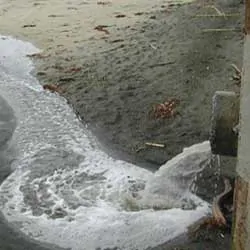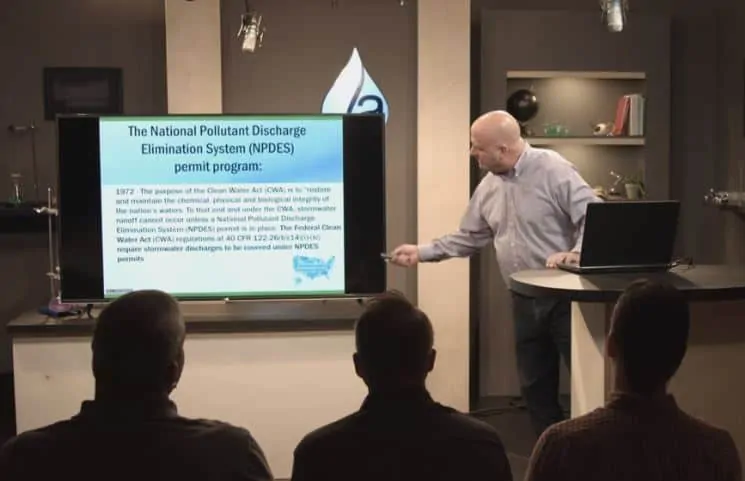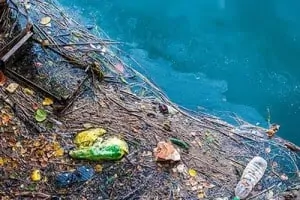


Environmental consciousness is growing, and SCS is increasingly hired for our expertise in developing appropriate self-imposed standards for ensuring that the water quality of our clients’ discharges remain beneficial to the downstream natural ecosystem. SCS’s stormwater clients have facilities spanning a large variety of industries, from solid waste to manufacturing to industrial waste, but they all have one thing in common: they all appreciate knowing the degree to which they are serving as protectors of the environment by meeting or exceeding water quality standards.
SCS Engineers helps clients navigate the U.S. EPA’s Clean Water Act regulatory maze. We serve a broad base of clients with stormwater compliance services, including construction, industrial, municipal, and waste discharge permitting. SCS’s professional staff can help with planning, design, installation, construction management, routine water quality monitoring, discharge waste characterization, treatment system performance evaluation, system audits, annual reporting, collaborative Total Maximum Daily Load (TMDL) development, and litigation support.
A new Federal Industrial Stormwater Permit (MSGP) goes into effect on March 1, 2021. This new national permit has within it, many of the same policies that California, Washington, and Oregon already mandate. The new MSGP will require all other 47 states to have EPA permits substantially “equal or similar to” this, taking effect within the next five years. For the District of Columbia, Guam, and Tribal Territories the effect will be felt immediately.

SCS professionals are experienced in developing both construction and industrial Storm Water Pollution Prevention Plans (SWPPPs). We have experts in biogeophysics, biogeochemistry, biological systems, and ecosystem habitats, as well as geologists, soils scientists, planners, environmental scientists, and agricultural, civil, chemical, and mechanical engineers. When addressing pollution from agricultural, urbanized, and otherwise anthropogenically-impacted ambient environments, our staff remains innovative. We know the local, state, and national standards well.
From start to finish, SCS Engineers and our Construction division can design, build, monitor, and evaluate stormwater systems to solve your problems, keep you in compliance, and safeguard the environment.
SCS’s Stormwater Management Services include the following, among others:
Our stormwater clients have included landfills, transfer stations, recycling facilities, vehicle maintenance facilities, fertilizer manufacturers, oil storage and distribution terminals, concrete batch plants, cement manufacturing plants, coating manufacturers, metal products manufacturers, paper plants, steel plants, pipe manufacturers, agricultural facilities, asphalt plants, printing plants, pharmaceuticals production, municipal facilities, municipal separate storm sewer systems, and others.
Design and Permitting of Stormwater and Green Infrastructure Facilities
SCS Engineers can design | build and assist with permitting stormwater and green infrastructure facilities. Our professionals have designed dozens of facilities throughout the United States, and they serve in leadership roles for organizations developing stormwater technologies, such as the 2012 WEF/ASCE Manual of Practice: Design of Urban Stormwater Controls.
Green infrastructure is the newest buzzword for Low Impact Development (LID), and we use a mix of traditional practices implemented in new ways; modern field practices; and new techniques that meet the needs of our clients and provide additional benefits to the watershed as a whole.
SCS’s typical stormwater facility services include:
LID Green Infrastructure facilities include:
Construction Stormwater Permitting
Construction activities that disturb more than one acre of soil require a NPDES Construction General Permit (CGP). These permits are provided by the US EPA, or by state environmental agencies. To comply, the permittee must submit fees and permit-required documentation to the jurisdictional authority. The process includes the development of a Storm Water Pollution Prevention Plan (SWPPP) that must be developed by a Qualified SWPPP Developer (QSD) and must include a project risk determination; development of a stormwater monitoring plan to test at a minimum pH and turbidity; preparation of a Rain Event Action Plan (REAP); and documentation for inspections. Inspections typically are required before and after qualifying storm events and weekly during construction activities, and must be submitted to the permitting authority’s online database.
SCS employs experienced QSDs throughout the country who are available to assist you in meeting your CGP compliance needs. We can provide SWPPP development, including erosion and sediment control plans, monitoring, and assistance with permitting authorities.
NPDES – National Pollutant Discharge Elimination System Permitting and Active Facility Management
Owners and operators of industrial and commercial facilities are required to comply with Federal and state programs that regulate “stormwater associated with industrial activities.” SCS Engineers routinely assist our clients with many aspects of stormwater management and compliance at active facilities. We help operations assess compliance with their National Pollutant Discharge Elimination System (NPDES) Stormwater Permit, and we recommend actions that must be taken to comply. Our services include:

Alert: Changes for Industrial Businesses in California

In 2014, the California State Water Resources Control Board (Board) adopted the Final Draft of the new Industrial Storm Water General Permit (IGP). The IGP is a statewide general National Pollutant Discharge Elimination System (NPDES) permit that regulates stormwater discharges from industrial activity.
SCS Engineers provides assistance in preparing and filing paperwork with the State Board. We can help you sort through the requirements and file in time to eliminate your risk of delinquency fines for non-filing and can total up to $37,500 per calendar day of non-compliance (Permit Section XXI.Q.2). Click here for SCS’s comprehensive list of industries that are affected by this permit and who must comply.
MS4 – Municipal Separate Storm Sewer System Permit
SCS has experience providing assistance to public agencies for MS4 permitting. While permitting requirements may change, we always include these six elements:
In addition to these services, SCS can assist with other program elements, including:
SCS provides litigation support consultation for our clients, including expert witness testimony, discovery (monitoring, investigation, and data collection), review of third party designs, and historical environmental phenomena. SCS’s team of hydrogeologists, ecologists, geomorphologists, water quality scientists, and engineers are experienced in designing and building environmental solutions. Our team of experts can negotiate with environmental regulatory agencies and provide services to law firm clients. SCS has a reputation for clear communications backed by detailed data analysis to provide indisputable technical illustrations.
Stream, Estuary, and Wetland Restoration
SCS Engineers provides engineering analysis and design to support watershed restoration and aquatic species management. We have a multidisciplinary staff with backgrounds in civil and environmental engineering, hydrology, river hydraulics, fluvial geomorphology, sediment transport, and fisheries ecology. Our services include topographic and geomorphic mapping, developing engineering design plans and specifications, and providing construction management and inspection.
SCS works with for-profit and non-profit organizations, and with numerous Federal, state, and local agencies. Our staff are highly experienced, working with project proponents to secure grant funding for fish passage and aquatic habitat restoration, and enhancement efforts.
Flood Control
SCS provides a full array of flood control consulting experience, including: